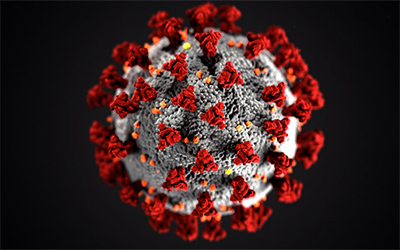By Jim Ellis
May 11, 2020 — Two congressional special general elections will be conducted today, but only one is expected to produce a winner tonight. Additionally, voters in Nebraska are casting ballots in their regular state primary.
The two special elections are in California and Wisconsin. The California seat, vacated when scandal-ridden freshman Rep. Katie Hill (D) resigned from office in October, has been controversial for a few weeks. The quieter contest is in Wisconsin where Republican state Senator Tom Tiffany is expected to hold the northwest 7th District that former Congressman Sean Duffy (R-Wausau) vacated for family reasons.
In the Cornhusker State, since first-term Sen. Ben Sasse has little opposition in the Republican primary and what appears to be seven minor statewide Democratic candidates vying for the party nomination – none have even raised $100,000 – the race garnering the most attention is the 2nd Congressional District primary.
There, Rep. Don Bacon (R-Papillon/Omaha) runs for a third term in what is again expected to be a competitive general election. Democrat Kara Eastman, who held Rep. Bacon to a 51-49% victory in 2018, is back on the ballot today principally facing Ann Ashford, the wife of former one-term US Rep. Brad Ashford (D-Omaha), and is favored to win tonight.
The California race in the state’s 25th District, which occupies much of northern Los Angeles County and a sliver of Ventura County, is formerly a Republican seat that switched to the Democrats in 2018. Clearly moving toward the latter party in terms of demographics and voting trends, the seat is still politically marginal to the degree where either side could win. Both candidates have spent over $2.2 million and are at parity in outside spending coming into the district for a contest that has sparked controversy.
Assemblywoman Christy Smith (D-Newhall), who represents close to half the district in the state legislature, was caught on camera disparaging Republican Mike Garcia’s military record. Mr. Garcia is a retired Navy fighter pilot. Ms. Smith later publicly apologized for her comments.
Furthermore, Republicans are already calling foul over how the election is being administered. President Trump, Minority Leader Kevin McCarthy (R-CA), and Garcia have raised concern whether the election will be fair. Gov. Gavin Newsom (D) ordered this special contest conducted primarily by mail, and in California the state allows voters to postmark their ballot on Election Day meaning votes could take days to reach the county election authorities considering the state of mail delivery during the COVID-19 shut down.
In addition to the mail ballots, the state has organized fewer than 15 voting centers for people to vote in person. Another point of controversy — a new voting center was just added in the city of Lancaster, which is predominantly Democratic and 69 percent majority minority. Additionally, as Rep. McCarthy illustrates, Gov. Newsom closed the state’s beaches in response to COVID-19 health concerns but won’t heed his motion to suspend door-to-door ballot harvesting for this election.
In a way, the special election is somewhat moot. The counties have until July 15 to certify the election, so it is clear we will not have a final count for days if not weeks, thus allowing the winner even less time in Congress. Regardless of the outcome, both Garcia and Smith will advance to the regular November election, where the campaign will be re-run. Republicans sense an upset possibility, but Democrats have much more on the line. Losing a Democratic seat in Speaker Nancy Pelosi’s home state might well sound an alarm for their general election prospects.




 April 29, 2020 — The deadline for the Census Bureau to release the new population data is March 31, 2021, but with the entire process being delayed due to COVID-19 precautions, the ability to meet the requirement is becoming more difficult by the day. Already, the Bureau has been delayed in dispatching their door-to-door teams necessary in obtaining the responses from people who did not return their mail tabulation form.
April 29, 2020 — The deadline for the Census Bureau to release the new population data is March 31, 2021, but with the entire process being delayed due to COVID-19 precautions, the ability to meet the requirement is becoming more difficult by the day. Already, the Bureau has been delayed in dispatching their door-to-door teams necessary in obtaining the responses from people who did not return their mail tabulation form. April 24, 2020 — A series of surveys were conducted by several independent pollsters in the most critical states that will likely determine the outcome of the 2020 presidential campaign, and the results are somewhat conflicting.
April 24, 2020 — A series of surveys were conducted by several independent pollsters in the most critical states that will likely determine the outcome of the 2020 presidential campaign, and the results are somewhat conflicting.